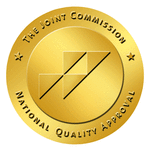
How often have we allowed fear to stop us from attempting a goal, working on a task, trying something new, venturing into unknown territory? Fear is a tremendous spirit-quencher. It robs us of energy, saps our creativity, threatens our sanity, and jeopardizes our sobriety. Fear is like a leech, sucking the blood right out of us. Tapped of motivation, unable to move or to make a decision, afraid to make a wrong move, fear permeates our entire being to the point where we seem frozen in time. We cannot move forward. We’re terrified of moving backward. We remain stagnated and lost under its weight.
Beyond all these negatives, fear has the profound ability to become even stronger over time. In effect, it becomes heavier on our minds. The longer we give in to fear, the more formidable it becomes.
For those who suffer right now with fear, or know someone in recovery who does, what can be done about it? How can we eliminate or vanquish fear so that it doesn’t retain the stronghold over our lives that can often make life seem impossible to bear?
This is no easy task, to be sure. Many psychiatrists, psychologists and addiction treatment specialists have attempted to help their clients overcome fear. It isn’t something we can do away with overnight, but it does help to have someone objective to talk with who can help us sort out what is unreasonable fear, that is, fear without a basis, from what is simply fear of the unknown. We may have a combination of both, or one or the other, depending on time and circumstance.
With the help of a professional, we can begin to work on our fears. There may be some desensitization therapy, called eye movement desensitization reprocessing (EMDR) that has been so effective in treating patients with trauma. The National Institute of Mental Health lists EMDR as an effective treatment for post-traumatic stress disorder (PTSD).
In order to overcome fear, we have to be willing to face it. By so doing, we rob it of its power over us. This doesn’t automatically erase the fear. Everyone has some kind of fear. The unknown can be a scary proposition. We don’t know what is ahead for us. None of us does. But that doesn’t mean that we allow fear to take over and dictate what we’ll do or not do, who we will meet or refuse to meet, what challenges we will take on or steer clear of.
Fear keeps us from doing anything that may make us happy. It can prevent us from meeting new people and possibly falling in love because we’re afraid we’re not good enough or unattractive or not rich enough or don’t have the right education or live in the wrong zip code. It can stop us from seeking a promotion at work or applying for a new job or branching out and going after a new career in another discipline.
List what it is that we are afraid of. Examine whether it is a realistic fear or one that exists solely in our mind. Next, list all the things that we want to do. If, while we are making out this list of wants and desires a thought pops into our head that we can’t possibly succeed in that endeavor, that is fear talking. Acknowledge that what we want to do may be risky and involve some challenges, but if we truly want it, we will find a way to get there. This stops fear in its tracks, leaving it nowhere to go.
Back to the list of things we are afraid of, now it is time to look through them and see how many of them are really off-shoots of some other fear. Group as many of them together as possible since the idea is to simplify what we are afraid of. This exercise also helps us identify patterns.
What do the remaining consolidated fears have in common, if anything? Once we know what we are afraid of and what situations or circumstances prompt the fear, then we can begin putting together a plan for overcoming those fears. Many therapists say that fear comes from not knowing what we should do in a particular situation. So, at this point, start listing the different ways to handle situations where we encounter fear.
Suppose, for example, that we’re deathly afraid of being alone the rest of our lives, that because of our addiction and all the time we have lost as a result, we have become isolated, poor at communicating, fearful of being rejected. Lump all these fears together and we’re likely sitting at home feeling sorry for ourselves instead of getting out there and taking constructive action to remedy our loneliness.
As for what we can do to remedy these fears, let’s just talk hypothetically. We may, for example, put on our list that we will try to make eye contact and have a friendly greeting with the cashier at the grocery store, with the server at the restaurant, with the gas station attendant, with fellow church members during services. If we make the effort to step outside our comfort zone, what is the worst that could happen? The other party may not reciprocate, but the likelihood is far greater that they will.
What if we have the best intentions but forget what we’ve planned to do the next time fear stops us from living the way we want to live? This shouldn’t be considered a dead end. In this case, remember that we have a purpose. We want to live a happy, healthy and productive life in sobriety. Everything that we do is geared toward that end. Having a sense of purpose, goals that we are willing to work hard to achieve, will help us move past our fears and remove their power over us.
Why let fear control our lives? When we have the strength and courage to face our fears, this is the first step toward dissipating their hold over us. Since we have embarked upon this journey of recovery, learning how to conquer fear is a valuable lesson that will benefit us now and all the rest of our lives.

 RSS Feed
RSS Feed
